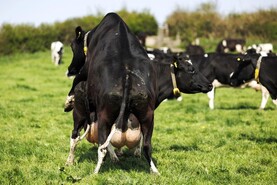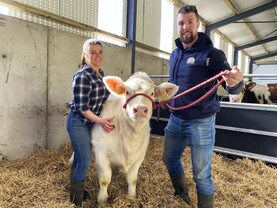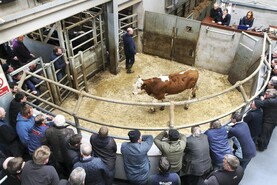Young bulls
Spring-born, under 16 months bulls will be coming close to finish on farms around the country. Keep an eye on dates of birth, as going over the 16-month mark will mean losing the QA bonus and a flat price payment, as opposed to getting the grid price payment system.
Feeding management is critical at the ad-lib stage and bulls shouldn’t be left without feed for any length of time during this period.
Be very careful taking out bulls to weigh or dose at this stage, as mixing bulls in any way can lead to fighting and will reduce performance and increase bulls’ chances of getting hurt. Fighting and rough handling will also lead to poorer-quality meat and increased blackening of carcases.
If you can, weigh bulls before slaughter and take a look back at liveweight performance and costs – to see if any improvements can be made for next year. Reducing meal input and maximising gains on the cow is fundamental to the success of this system.
Autumn Heifers and Bulls
Every year we hear of disasters where heifer weanlings sold through marts turn up in-calf and have to be returned to the owner along with a bill for scanning and feeding, and maybe even a vet bill for delivering the calf. Some finishers have stopped buying heifers because of this added hassle. Weanling heifers can reach puberty quite early if they are gaining weight quickly and are on a high plane of nutrition.
Autumn-born heifer and bull calves should be split up at this stage to avoid any unwanted pregnancies. Separating these animals now also means you can feed the bull calves while keeping heifer calves on good grazing.
Some farmers now attach a scanning guarantee that heifers are not in calf and some marts in the west provide this service at the intake pens at the mart to reassure customers. Take note of any heats and if in doubt get your vet or scanning operator to scan.
Breeding Progress
Breeding seems to be progressing well on farms around the country. There was a worry that cows turned out in poor condition would be slow in coming into heat, but in general cows have recovered quite quickly.
This week, Better farm: Breeding season so far we profile the progress on the Teagasc/Irish Farmers Journal BETTER beef farms around the country.
In general, progress is good. All farms are working to a plan and have start and finish dates.
Keep an eye on stock bulls to make sure they are working and also keep a close eye on any repeats. An early scan can sometime be worth it in terms of peace of mind.
All stock bulls should have been fertility tested at this stage, even if fertility wasn’t an issue last year. Cows that haven’t been seen in heat should be handled and get appropriate treatment early, eg wash-outs, prostaglandin or the progesterone programme.
Ask your vet about appropriate treatment. While some would question keeping these problem cows, a simple intervention can sometimes keep them in the herd.






 This is a subscriber-only article
This is a subscriber-only article









SHARING OPTIONS: